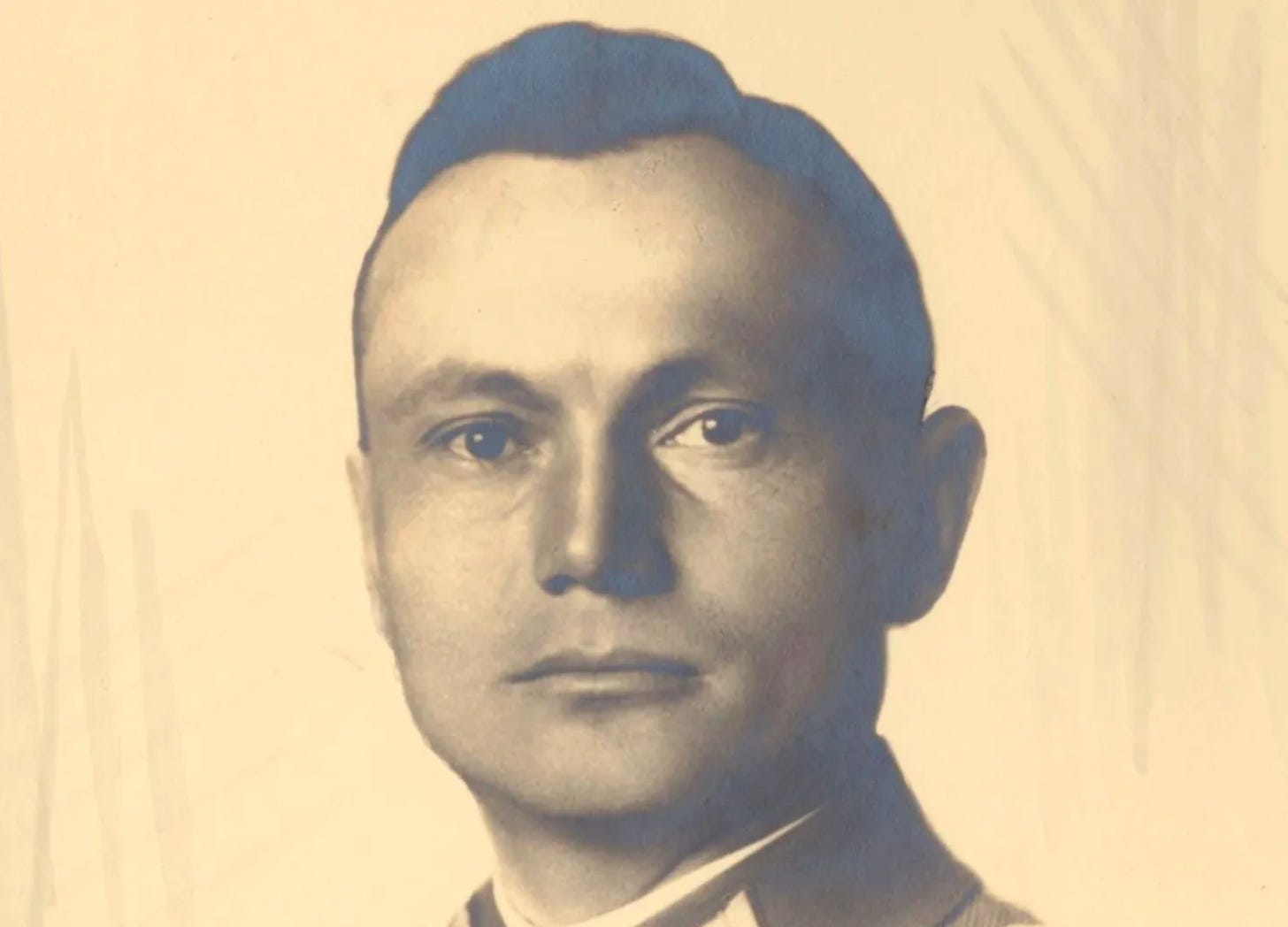Hermann Balck on Leading from the Front
An excerpt from an interview conducted in 1979
Welcome to the Tactical Notebook, where you will find more than five hundred tales of armies that are, armies that were, and armies that might have been. If you like what you see, please share, subscribe, and restack. If you find this article to be ill-founded, poorly-written, or just plain wrong, please send copies of it to your enemies.
The following paragraphs come from the transcript of an interview conducted with Lieutenant General Hermann Balck in 1979.
Interviewer: Wasn't there anybody on the German side in World War I who saw that leading from the rear was a serious mistake?
Hermann Balck: Yes, Ludendorff recognized the tremendous error of trying to command from the rear, and in fact, in the spring of 1918 he issued a very famous order that was part of the new infiltration tactics of 1918, and this was an order concerning command. He ordered all division commanders in the coming offensives to command from the front lines on horse-back. Where this was done, it had a tremendous success.
In fact, it had two effects: one tactical and one political. Naturally, the divisions that were led from the front had much greater tactical success than the others. But interestingly enough, those same divisions were the ones that suffered no mutinies during the upheavals of 1918.
Interviewer: I certainly agree on the value of commanding from the front, the tremendous effect of a commander who leads from the front has to be seen to be believed.
Hermann Balck: Sure. In World War II, at Sedan [in France, in May 1940], my combat leaders told me that they were finished, that they just simply couldn't advance anymore, and I said ‘Fine. Whoever wants to stay here can stay here. I'm leading the attack on the next village’, and of course, the entire regiment sprang up as one man to follow me.
For Further Reading:
To Share, Subscribe, or Support:







From horseback!
Did they really? How did that work?
Interesting detail that was passed over by the discussants.
I saw a version of the story about Balck saying he was going to continue the attack personally which had some additional dramatic detail. As I recall it, he had apparently suffered a leg injury and was limping. Balck told a soldier standing near the officers who were reporting to him to hand him his rifle. He then announced that he was going to continue the attack himself and began walking off, limping, in the direction of the enemy. At this point everyone promptly got moving and made the attack. Apparently there was nothing but disorganized French troops in front of them, who were not permitted time to prepare a defense because the Germans stayed relentlessly at their heels. Beyond those few Frenchmen, open country and open roads all the way to the coast …
Can’t remember where I read this. It would be a great scene in a movie. Here Balck is showing some humility and reticence, and not gilding the story, which is in character.
Front, FEBA FLOT are obsolete concepts.